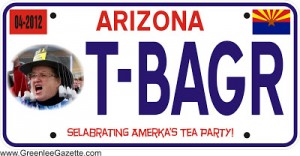The Bottom Line For E-mail Is Blogging
In a “white paper” about the future of business blogging, Compendium Blogware Inc. co-founder Chris Baggott explains that, back in the year 2000, there was still a lot of skepticism on the part of business owners about using email as a business communications tool. Since then, of course, email has been adopted by just about every business and organization to stay in touch with customers and constituents. Now, some of that same reluctance is evident when it comes to corporate blogs.
Since I work as a ghost blogger, serving as “the voice” of many small businesses and professional practices, Baggott’s explanation of the difference between email marketing and marketing through blogging is really the crux of the matter for me and my clients. Here’s the essence of what he says in the “white paper”:
“Blogging provides the same benefits as email in an easy-to-use and inexpensive way. It’s the perfect complement to email as a marketing tool for the beginning of the relationship.”
The bottom line is, you can’t email people without their permission. And you can’t ask for their permission if you don’t know who they are. That’s where corporate blogging comes in. Email can’t help your business or practice acquire customers, but blogging can. Since so many professionals and business owners lack the time or the inclination to compose blogs, that’s where a ghost blogger comes into, or rather behind, the picture!

 As a business ghost blogger for hire, I take an interest, not only in the work of colleagues in that small but growing profession, but also in the doings of “ghosts” in other fields. Take country music, for example (being a square dancer these many years has bred in me a love for country tunes). The relative importance of lyrics versus melodies in songs of any type can be debated, but you’ll have to admit that, with country songs, storytelling and “plays on words” constitute a big part of almost all the best-loved country songs’ special appeal.
As a business ghost blogger for hire, I take an interest, not only in the work of colleagues in that small but growing profession, but also in the doings of “ghosts” in other fields. Take country music, for example (being a square dancer these many years has bred in me a love for country tunes). The relative importance of lyrics versus melodies in songs of any type can be debated, but you’ll have to admit that, with country songs, storytelling and “plays on words” constitute a big part of almost all the best-loved country songs’ special appeal.
Follow us online!